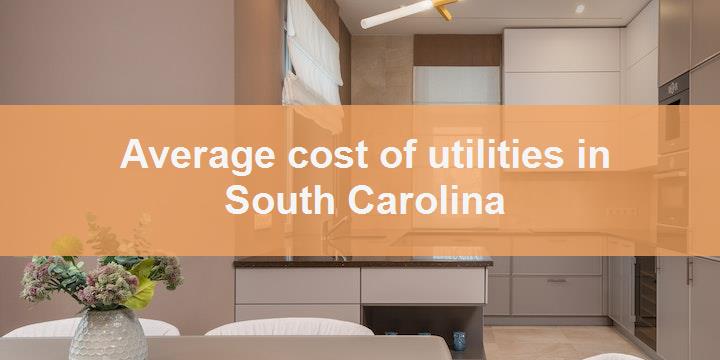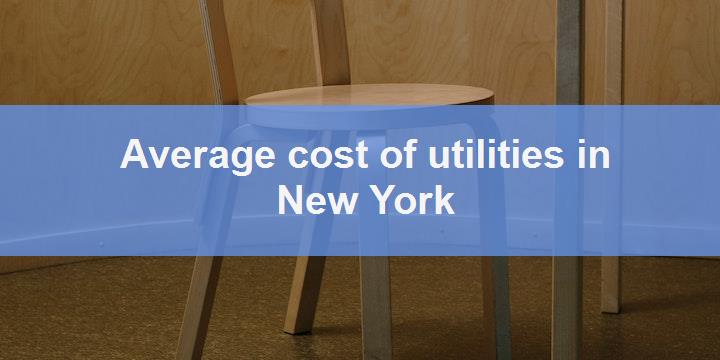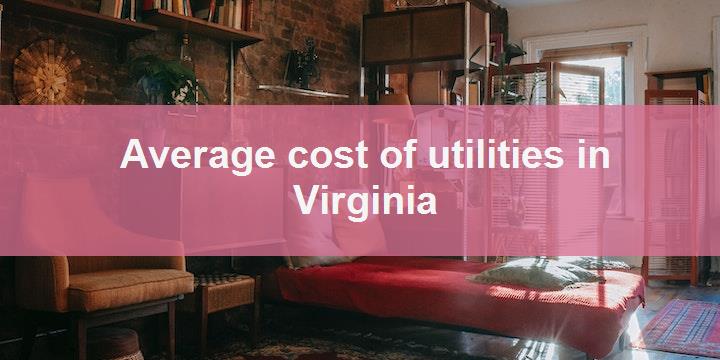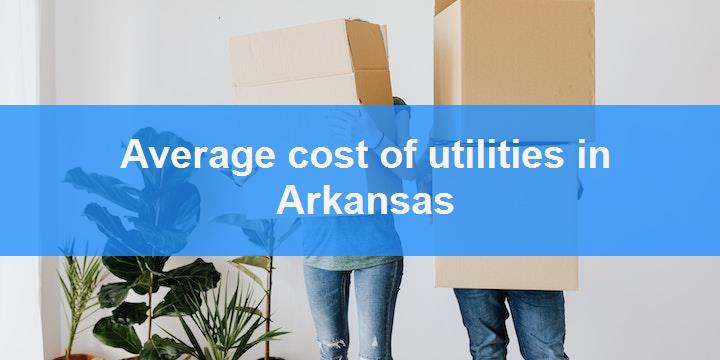Understanding the average cost of utilities in South Carolina is key to managing your household budget effectively. In 2025, the average cost of utilities for a family of three living in a single-family home is $628.30. This estimate reflects typical usage of standard appliances throughout the year, considering South Carolina’s humid subtropical climate, which influences both energy consumption and costs.
From hot, humid summers that drive up air conditioning usage to mild winters with moderate heating needs, South Carolina’s diverse seasons play a significant role in utility expenses. In this article, we’ll break down utility costs across different household setups and seasons, giving you a comprehensive view of what to expect when living in the Palmetto State.
Whether you’re relocating, budgeting for your current home, or simply curious about how South Carolina compares to other states, this guide will provide the data-driven insights you need to make informed decisions. 🌡️💡
Average Electric Bill in South Carolina
When it comes to managing your household budget in the Palmetto State, understanding electricity costs is key. In 2025, the average electric bill in South Carolina for a family of three living in a single-family home is $144.03. This figure reflects typical energy usage influenced by the state’s hot, humid summers and mild winters.
Electricity consumption fluctuates throughout the year, with cooling systems driving up costs in the summer and heating needs influencing winter bills. The average is calculated based on seasonal usage—$173.20 during winter and $114.85 in the summer.
South Carolina vs. North Carolina: Summer Energy Cost Comparison
Curious about how South Carolina’s energy costs stack up against its northern neighbor? The table below compares the summer electricity expenses for a large single-family home with four people in South Carolina and North Carolina. This comparison offers insights into how climate, energy rates, and household consumption habits impact utility costs in both states.
| Criteria | South Carolina | North Carolina |
|---|---|---|
| Total Consumption (kWh) | 862.12 kWh | |
| Electricity Rate (cents/kWh) | 14.23 ¢/kWh | 14.25 ¢/kWh |
| Estimated Monthly Cost | $122.68 | $122.85 |
| Detailed Cost Breakdown | ||
| Base Usage: 412.12 kWh | $58.64 | $58.73 |
| Refrigerator: 120 kWh | $17.08 | $17.1 |
| Air Conditioner: 240 kWh | $34.15 | $34.2 |
| Clothes Dryer: 90 kWh | $12.81 | $12.83 |
| South Carolina estimated monthly cost is lower than North Carolina by 0.14%. | ||
Historical Trends in Electricity Prices
The historical chart above illustrates electricity price trends in South Carolina over the years, focusing on large single-family homes during the summer. Analyzing these trends helps you understand how factors like weather patterns, energy demand, and rate changes have influenced electricity costs over time.
Electricity Cost Comparison Across Various States
Here is a comprehensive comparison of electricity costs across different states, considering various household types and seasons. This table offers a broad perspective on utility expenses.
| State | People | Household Type | Season | Appliances | Electric Monthly Bill |
|---|---|---|---|---|---|
| New York | 3 | One-bedroom apartment | Summer | Fridge, AC, Dryer |
$148.77 |
| California | 4 | Single-family large | Winter | Heater, Dryer, Fridge |
$407.08 |
| Texas | 3 | Townhouse | Winter | Heater, Dryer, Fridge |
$168.56 |
| Florida | 3 | Single-family small | Summer | Fridge, AC, Washer |
$102.05 |
| Illinois | 3 | Two-bedroom apartment | Summer | Fridge, AC, Washer |
$98.75 |
| Ohio | 2 | Studio | Winter | Heater, Fridge |
$141.14 |
| South Carolina | 2 | Townhouse | Summer | Fridge, AC, Washer |
$94.27 |
For a more detailed and personalized utility expense estimate, explore our Electricity Bill Calculator. Adjust the parameters to match your household specifics and get an accurate estimate tailored to your needs.
Average Gas Bill in South Carolina
When it comes to managing household expenses in South Carolina, understanding gas costs is essential—especially with the state’s varied climate. In 2025, the average gas bill in South Carolina for a family of three living in a single-family home is $228.95. This figure reflects typical energy usage influenced by hot, humid summers and mild winters.
Gas consumption fluctuates throughout the year. During the winter, heating systems drive higher usage, averaging around $335.37. In contrast, summer gas use typically decreases, focusing on appliances like grills and water heaters, with an average of $122.53.
South Carolina vs. North Carolina: A Summer Gas Usage Comparison
Curious about how South Carolina’s gas costs compare to its northern neighbor? The table below compares the summer gas expenses for a large single-family home with four people in South Carolina and North Carolina. This comparison sheds light on how climate, household energy habits, and utility rates impact gas consumption and costs in both states.
Gas Bill Comparison Overview
| Criteria | South Carolina | North Carolina | Avg. USA |
|---|---|---|---|
| Total Consumption (MCF) | 6.99 MCF | ||
| Gas Rate ($/MCF) | $20.94 | $19.83 | $17.73 |
| Estimated Monthly Cost | $146.41 | $138.65 | $123.97 |
| Appliance Cost Breakdown | |||
| Outdoor Grill | $11.56 | $10.95 | $9.79 |
| Water Heater | $84.77 | $80.27 | $71.77 |
| Gas Stove | $19.26 | $18.24 | $16.31 |
| Gas Oven | $30.82 | $29.19 | $26.10 |
| South Carolina's estimated monthly cost is higher than North Carolina by 5.60%. | |||
| South Carolina's estimated monthly cost is higher than the Avg. USA by 18.10%. | |||
The historical chart above illustrates gas price trends in South Carolina over the years, focusing on large single-family homes during the summer. By analyzing these trends, you’ll gain valuable insights into how factors like seasonal demand, energy policies, and market fluctuations have influenced gas costs over time.
Gas Cost Comparison Across Various States
Here is a detailed comparison of gas costs across different states, considering various household types and seasons. This table offers a comprehensive view of utility expenses.
| State | People | Household Type | Season | Appliances | Gas Monthly Bill |
|---|---|---|---|---|---|
| New York | 3 | Townhouse | Summer | Water heater, Stove, Oven |
$88.71 |
| Arizona | 2 | Studio | Summer | Water heater, Stove, Oven |
$68.82 |
| Vermont | 4 | Single-family small | Winter | Gas heating, Dryer, Oven |
$298.95 |
| Texas | 3 | Townhouse | Winter | Gas heating, Dryer, Oven |
$279.14 |
| Illinois | 3 | Single-family small | Summer | Water heater, Stove, Oven |
$79.83 |
| Georgia | 4 | Single-family large | Summer | Water heater, Stove, Oven |
$172.91 |
| Oklahoma | 2 | Studio | Winter | Gas heating, Dryer, Oven |
$170.61 |
To get a more detailed and customized utility expense estimate, visit our Gas Bill Calculator. You can tailor the parameters to suit your household specifics, providing you with an accurate estimate that’s personalized to your needs.
Average Water and Sewer Bill in South Carolina
When planning a move to South Carolina or considering an investment, it’s essential to understand the costs associated with water and sewer services. In 2025, the average water and sewer bill in South Carolina is $53.00, a key factor that can influence your household budget or real estate decisions.
How South Carolina Compares to Other States
To give you a broader perspective, here’s a comparison of South Carolina’s water and sewer fees with those in neighboring and nearby states:
| State | Average Water and Sewer Fees |
|---|---|
| Georgia | $48.00 |
| North Carolina | $50.00 |
| Tennessee | $63.00 |
| Florida | $33.00 |
| Alabama | $70.00 |
| Virginia | $46.00 |
| Kentucky | $69.00 |
| Mississippi | $43.00 |
| Arkansas | $46.00 |
| Louisiana | $51.00 |
| Texas | $57.00 |
South Carolina’s fees are quite competitive, especially when compared to states like Georgia and Florida, where higher costs are often driven by population density and infrastructure demands.
Innovative Water Conservation Practices in South Carolina
South Carolina’s climate and geography provide unique opportunities for efficient water management. The state has adopted several forward-thinking approaches, including:
- Coastal Management: Utilizing natural coastal marshes and wetlands for flood control and water filtration.
- Rainwater Harvesting: Implementing systems to capture and store rainwater for irrigation and non-potable uses.
- Aquifer Recharge Projects: Replenishing local aquifers to ensure a sustainable long-term water supply.
- Green Urban Spaces: Designing urban areas with green spaces that help manage stormwater and reduce runoff.
Local Programs Supporting Water Conservation
South Carolina also offers a range of programs to encourage water conservation among residents and businesses:
- Rebate Programs: Financial incentives for installing water-efficient appliances and fixtures.
- Educational Workshops: Community events focused on water-saving techniques tailored to South Carolina’s environment.
- Community Grants: Funding opportunities for local projects that promote sustainable water management.
South Carolina’s Commitment to Sustainability
With a strong focus on environmental sustainability, South Carolina actively promotes practices that conserve natural resources while supporting economic growth. This commitment not only benefits the environment but also enhances the quality of life for residents by keeping utility costs reasonable and ensuring long-term resource availability.
Conclusion
South Carolina’s competitive water and sewer fees, combined with its innovative conservation strategies and strong local initiatives, make it an attractive choice for both homeowners and real estate investors. By understanding these costs and the state’s commitment to sustainability, you can make more informed decisions for your household or investment plans.
Garbage/Trash Removal Costs in South Carolina
When budgeting for household expenses in South Carolina, it’s important not to overlook waste management costs. The average cost for garbage and trash removal services in South Carolina in 2025 is around $23.00, although this can vary depending on factors like service frequency, provider, and whether recycling services are included.
How Waste Management Impacts Costs
South Carolina has implemented various waste reduction initiatives to promote recycling and minimize landfill use. Many communities offer curbside recycling programs, which can influence the overall cost of garbage removal. In areas with strong recycling efforts, households may benefit from lower waste disposal fees due to reduced landfill dependency.
Comparing Garbage/Trash Removal Costs Across States
For a broader perspective, here’s a comparison of average garbage and trash removal costs in South Carolina and several neighboring states:
| State | Average Cost |
|---|---|
| South Carolina | $23.00 |
| North Carolina | $24.00 |
| Georgia | $23.00 |
| Florida | $24.00 |
| Tennessee | $24.00 |
| Virginia | $26.00 |
| Alabama | $20.00 |
| Kentucky | $23.00 |
| Mississippi | $20.00 |
South Carolina’s garbage removal costs are competitive compared to neighboring states. While states like Florida and Georgia may have slightly higher costs due to their dense urban populations, South Carolina maintains moderate rates thanks to efficient waste management systems and community recycling initiatives.
Tips for Reducing Waste Management Costs
- Participate in Local Recycling Programs: Reducing the amount of waste sent to landfills can lower your overall garbage removal fees.
- Compost Organic Waste: Composting reduces the volume of household trash, which may decrease service costs for homes charged based on waste volume.
- Consider Shared Services: In some rural areas, shared community waste collection can be more cost-effective than individual contracts.
Understanding these costs helps you plan your budget more effectively. If you have questions about managing your utility expenses in South Carolina, our team is here to assist you with expert insights and practical advice. ♻️🚮
Internet and Cable TV Expenses in South Carolina
Staying connected is a necessity in today’s world, and managing the costs of internet and cable TV is a key part of household budgeting. The average internet and cable TV expenses in South Carolina in 2025 are around $112.66, though actual costs can vary based on your provider, service plan, and location within the state.
Choosing the Right Provider for Your Needs
South Carolina offers a variety of internet and cable TV providers, giving residents flexibility to choose services that match their needs. This competitive landscape helps keep prices reasonable while ensuring access to high-speed internet and quality TV programming, whether you’re in bustling Charleston or a quieter rural area.
Here’s a comparison of prices from popular providers in South Carolina:
| Provider | Internet Price | Cable TV Price | Bundle Price |
|---|---|---|---|
| Comcast | $58.99 | $69.99 | $113.99 |
| Verizon | $59.99 | $70.99 | $120.99 |
| AT&T | $54.99 | $65.99 | $102.99 |
Each provider offers different packages, so it’s important to compare plans based on internet speed, channel selection, contract terms, and overall value. Bundling services can often lead to cost savings, especially if you require both internet and cable TV.
How Does South Carolina Compare?
To put South Carolina’s internet and cable TV costs in perspective, here’s a comparison with neighboring states:
- North Carolina: $114.66
- Georgia: $113.66
- Florida: $114.66
- Tennessee: $116.32
- Alabama: $109.66
- Virginia: $111.66
- Kentucky: $112.66
- Mississippi: $114.66
South Carolina’s costs are generally competitive compared to states like North Carolina and Georgia, offering a balance of affordability and service quality. Factors such as local infrastructure, rural access, and provider competition influence these price differences.
Tips for Reducing Internet and Cable Costs
- Bundle Services: Combining internet and cable TV into one package often reduces costs compared to purchasing them separately.
- Review Plans Annually: Providers frequently update their offers, so reviewing your plan each year can help you secure better rates.
- Negotiate with Providers: Don’t hesitate to negotiate pricing, especially if you’ve been a long-term customer or if competitors offer better deals.
To get the best value for your money, it’s smart to regularly compare providers, explore new plans, and stay informed about promotional offers. Our team recommends checking back frequently as we update this section with the latest data to help you make cost-effective decisions. 🌐📺
Home Phone and Mobile Phone Costs in South Carolina
Staying connected is essential in today’s digital world, and managing home phone and mobile phone expenses is a key part of household budgeting. The average home phone and mobile phone costs in South Carolina in 2025 are around 66.66, though actual costs can vary depending on the service provider, plan features, and your specific location within the state.
Choosing the Right Phone Provider
South Carolina offers a wide range of phone service providers, giving residents plenty of options to suit their communication needs. This competitive landscape helps keep prices affordable while ensuring reliable coverage across both urban and rural areas. Whether you’re in bustling Charleston or the scenic Lowcountry, there’s a plan to match your budget.
Here’s a detailed comparison of mobile and home phone prices from major providers in South Carolina:
| Provider | Mobile Phone Price | Home Phone Price |
|---|---|---|
| Verizon | $71.99 | $38.99 |
| AT&T | $66.99 | $33.99 |
| T-Mobile | $60.99 | Not Available |
Each provider offers different plans, so it’s important to compare features such as data limits, call coverage, and international options to find the plan that best fits your lifestyle and budget.
How Does South Carolina Compare to Other States?
To put South Carolina’s phone costs in perspective, here’s a comparison with neighboring states:
- North Carolina: 64.66
- Georgia: 66.66
- Florida: 65.66
- Tennessee: 68.32
- Alabama: 62.66
- Virginia: 63.66
- Kentucky: 68.32
- Mississippi: 65.66
South Carolina’s phone costs are generally competitive compared to neighboring states like North Carolina and Georgia, offering a balance of affordability and reliable service. However, pricing can vary depending on coverage areas, provider promotions, and plan features.
Tips for Reducing Phone Expenses
- Bundle Your Services: Many providers offer discounts when you combine mobile, home phone, and internet services.
- Review Your Plan Regularly: Phone companies frequently update their plans. Reviewing your plan annually can help you find better deals.
- Consider Prepaid Plans: If you don’t need unlimited data, prepaid plans can be more cost-effective without long-term contracts.
To get the best value for your money, it’s important to compare different providers and packages. Staying informed about the latest plans and promotional offers ensures you’re not overpaying for services. 📞📱
Stay Updated with the Latest Rates
Phone service prices and plans can change frequently. That’s why we update this article monthly to reflect the most current rates and offerings in South Carolina. Be sure to check back regularly for the latest information and expert tips to help you make smart, budget-friendly decisions. 🌟
FAQ
Q: 💡 What is the average monthly electric bill in South Carolina in 2025?
A: The average monthly electric bill for South Carolinians in 2025 is approximately $144.03.
Q: 🔥 What is the average monthly gas bill for South Carolinians in 2025?
A: The average monthly gas bill for South Carolinians in 2025 stands at approximately $228.95.
Q: 🚰 What is the average monthly water and sewer bill in South Carolina in 2025?
A: The average monthly water and sewer bill in South Carolina in 2025 is around $53.00.
Q: 🗑️ What is the average monthly garbage and trash removal cost in South Carolina in 2025?
A: The average monthly garbage and trash removal cost in South Carolina in 2025 is about $23.00.
Q: 📡 What is the average monthly internet and cable TV bill in South Carolina in 2025?
A: The average monthly internet and cable TV bill in South Carolina in 2025 is approximately $112.66.
Q: 📱 What is the average monthly home and mobile phone bill in South Carolina in 2025?
A: The average monthly home and mobile phone bill in South Carolina in 2025 is around 66.66.
Q: 🧾 What is the total average monthly cost of utilities in South Carolina in 2025?
A: The total average monthly cost of utilities in South Carolina in 2025 is approximately $628.30.



